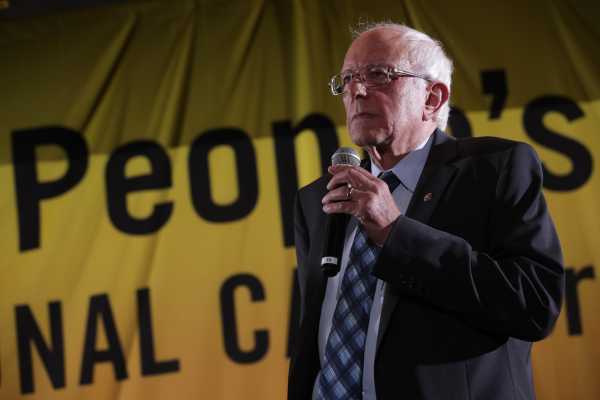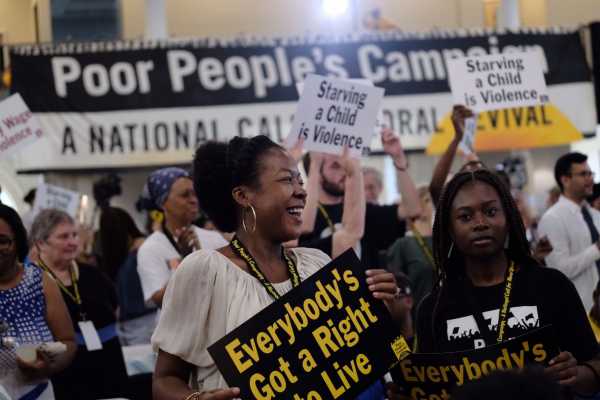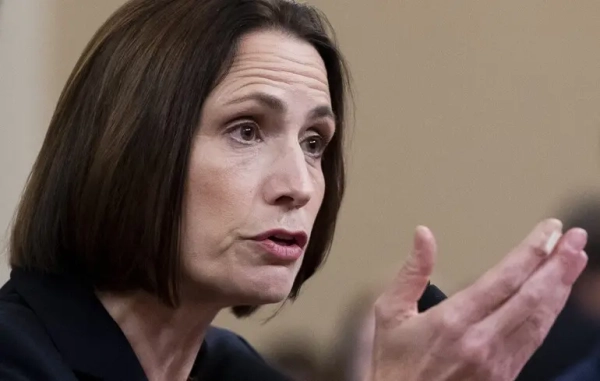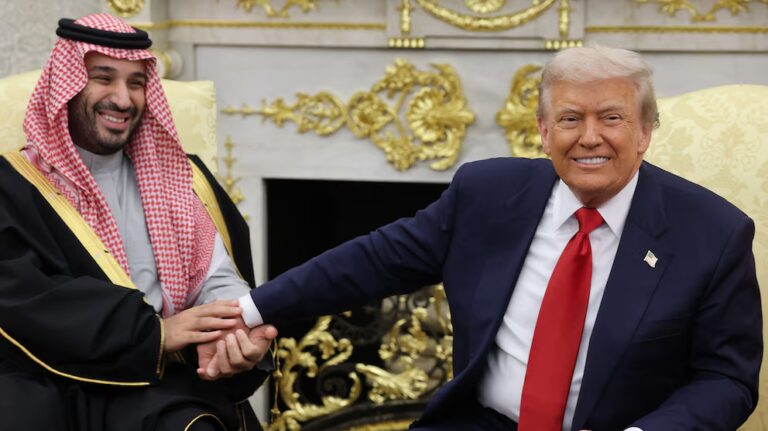
Nine 2020 Democratic presidential candidates were in Washington, DC, on Monday to discuss their plans to address poverty and systemic racism. And some had clearer plans than others.
The presidential candidates — former Vice President Joe Biden; Sens. Kamala Harris, Bernie Sanders, Elizabeth Warren, and Michael Bennet; Mayor Wayne Messam of Miramar, Florida; Rep. Eric Swalwell (D-Cal); self-help author Marianne Williamson; and entrepreneur Andrew Yang — addressed hundreds of activists from across the country at the Poor People’s Campaign Presidential Forum, which marked the first day of a three-day conference looking at the issues closely tied to poverty in America. President Donald Trump was also asked to attend but did not respond to an invitation.
The presidential forum comes as candidates are increasingly talking about the economy and its impacts on different communities. In recent weeks, Warren, Sanders, Harris, and other candidates like former Housing and Urban Development Secretary Julián Castro and Sen. Cory Booker have discussed how economic disparities are closely tied to other issues, including restrictions on voting rights, a lack of affordable housing, and an insufficient minimum wage.
Warren and Harris came to the forum with specific plans they’d like to implement, like increasing taxes on the wealthy to fund federal programs and providing additional relief to renters. Biden, on the other hand, discussed his belief in working with Republicans to pass policy, and Sanders continued his call for a political revolution.
Policy discussions are important, argues the Poor People’s Campaign, a clergy-led movement to revive a national discussion around poverty and systemic racism, voter suppression, and “ecological devastation” that was started by Martin Luther King Jr. But they say that politicians often focus exclusively on addressing the needs of the middle class and the wealthy, ignoring the millions of Americans struggling to make ends meet.
The group also adds that politicians and reporters often focus on a racialized understanding of poverty, noting that while black and Latino people are more likely to be poor, poverty has also hit millions of white Americans in the country.
As Francine Jefferson, a forum attendee from Mississippi, said on Monday, “poverty hurts.”
The Monday forum not only required candidates to share their plans to address poverty in America, they also heard directly from poor Americans themselves. The organizers of the event say that this is intentional, arguing that politicians from both parties must correct decades of inaction on policies to help America’s poor.
“Any nation that ignores half its people is in a moral and economic crisis that is constitutionally inconsistent, economically unstable and morally insane,” said the Rev. William Barber II, one of the leaders of the Poor People’s Campaign.
Candidates differ on policy visions
Four of the speakers at the forum — Biden, Warren, Sanders, and Harris — are polling among the front of the massive group of 2020 Democratic candidates. During their appearances Monday, there was some agreement among them, particularly on the need for a televised debate about poverty and systemic racism in the coming months. But each candidate sought to distinguish their plans to fight poverty from that of their opponents, arguing that their policy vision would best benefit poor Americans and address decades of inaction on fighting poverty.
Biden was the first to speak, and the forum marked the first time he had attended an event with other Democratic candidates. Biden has largely focused on proposals to help the middle class, and has been less clear than candidates like Warren when discussing how he would address issues affecting low-income Americans.
Likely aware of this, Biden said on Monday that poverty was “the one thing that can bring this country down.”
He said, if elected, he would eliminate much of the GOP’s tax cuts to fund new programs helping the poor. Biden also said he’d reduce the military’s budget to fund programs for children and pay for expanded health care.
“We have all the money we need to do it,” Biden said.
Asked about working with a Republican Senate that would likely be unwilling to compromise on these things, Biden said that he would be able to convince legislators like Senate Majority Leader Mitch McConnell to cooperate. His comments were later criticized by other candidates, including Warren and Sanders.
“Let’s be clear, if we’re in the majority and Mitch McConnell wants to block us on the kinds of things our country needs and the kinds of things they elected me and other people to enact, then I’m all for getting rid of the filibuster,” Warren said.
“We cannot let him block things the way he did during the Obama administration,” she added.
Warren also discussed her plans for a wealth tax targeted at the wealthiest Americans. She said that the measure would help fund a number of policy programs including universal child care, adding that the tax should not be seen as a penalty on the rich, but as a call for them to invest in a country that enabled them to build so much wealth.

Sanders continued to stress that there needs to be a “political revolution” in America, adding that fighting poverty will require a large-scale coalition and that “economic rights are human rights.”
“To transform this country, millions of people … need to come together and tell people with the power now that this power structure will no longer continue,” he said. Sanders also drew applause when he reiterated his support for allowing incarcerated people to vote.
Harris, who was the final speaker at the forum, opened with a discussion of her renter relief plan, which would give a tax credit to people using more than 30 percent of their monthly income on rent. She also joined other candidates in speaking of the importance of a $15 minimum wage and singled out cash bail and pretrial detention as other issues that have seriously affected poor Americans and other marginalized communities.
“This is an economic justice issue as much as it is a criminal justice issue, and it must be addressed quickly,” Harris said.
The Poor People’s Campaign has its own plan to end poverty
In a press call before the forum, Barber and Poor People’s Campaign co-chair the Rev. Liz Theoharis argued that the issues of poverty and systemic racism are bigger than any one election, and that it has been the inaction of both parties that allowed millions to languish with little assistance.
On Monday, the Poor People’s Campaign also released “The Poor People’s Moral Budget,” published with the help of the Institute for Policy Studies. The budget calls for cuts in defense spending and an end to tax breaks for the rich, arguing that this money would be better put to use restoring the social safety net, improving wages, and providing services to the poor. The budget report also rails against voter suppression and gerrymandering, citing the two as examples of “policy violence” or, as Barber put it on Monday, “policy racism.”
The Poor People’s Campaign says that there are more than 140 million people making less than twice the poverty line in the United States and that the country must move past partisan politics and focus on assisting poor and low-income people.
“Poverty and inequality are created by policy, and must be remedied by policy, not pity,” Barber and Theoharis note in the report.
Before they hosted the presidential candidates on Monday, Barber and Theoharis argued that their forum was focused on the needs of poor Americans, not on the performances of the candidates.
“We cannot continue to keep rejecting the poor, rejecting the hurting…This is bigger than the next election,” Barber said during a June 16 appearance on CNN. “This is about whether America can be America, itself. It is about our long-term health as a country.”
Sourse: vox.com






